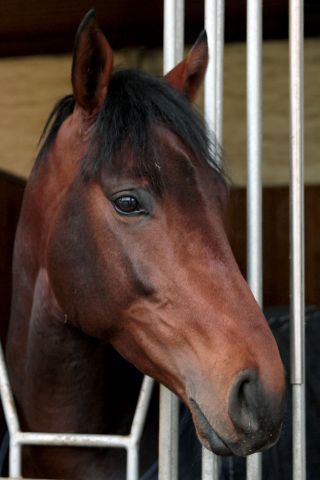Folgen
@turftimes folgen
Drucken
Redaktion
Startseite
Verwandte Artikel:
21.11.24
Das letzte Wochenende der polnischen Saison auf der Warschauer Rennbahn Sluzewiec stand voll im Zeichen von Maciej Janikowski, den das deutsche Publikum als Trainer des Ausnahmehengstes Va Bank (Archipenko) kennt. Der Altmeister, der 2024... weiterlesen »
19.11.24
Krefeld last Sunday ended their racing season with the Grosser Preis der Wohnstaette Krefeld formerly the Herzog von Ratibor - Rennen for 2 year olds over the 1700m (1m ½ f) trip and of Group III ... weiterlesen »
14.11.24
Eine Woche nach der Slowakei endete die Saison auch in Tschechien. Der letzte Renntag in Prag brachte viel Spannung bereits vor den Rennen, denn noch um 11 Uhr Vormittag lag dichter Nebel über der Rennbahn und es war fraglich, ob und wie... weiterlesen »
14.11.24
Even though the Turf season continues with Dresden next Wednesday and Munich on Saturday and eventually weather permitting Mulheim on December 26th really last Sundays meeting in Munich Riem brought down the curtain especially on... weiterlesen »
07.11.24
Last Saturday saw the curtain fall in Cologne, bringing to an end their 2024 Season. A nine race programme which included two amateur races had the 'Silbernes Pferd a Group 3 contest over 3000m (1m 7f) as the main attraction. Run on very... weiterlesen »
07.11.24
In Deutschland trainierte Pferde auf den ersten drei Plätzen in einem Top-Rennen in Warschau, das dürfte ein Kuriosum in der modernen Geschichte des polnischen Rennsports sein. Deutsche Starter waren sowohl vor, als auch nach der Wende auf... weiterlesen »
31.10.24
Die Saison in Tschechien endet zwar erst am 9. November, aber bereits am vergangenen Wochenende wurden die letzten großen Rennen des Jahres gelaufen. Dem Prager „Präsidenten-Preis“ – 103. Loko Trans Cena prezidenta republiky (3200 m, ca. 7... weiterlesen »
31.10.24
The ten race programme in Hannover last Sunday produced some interesting results. A programme that included a Group 3 fillies race, two listed races for for the youngsters and a sales race was always going to throw up some unusual outcomes... weiterlesen »
24.10.24
Seit Jahren gehört der Lokotrans-Stall des tschechischen Besitzers Karel Jalový zu regelmäßigen Kunden der BBAG Auktionen, inzwischen ist er unter dem französischen Label Haras LT Cheval auch in der Zucht aktiv. In den letzten Wochen kann... weiterlesen »
24.10.24
Even though we still have a few good weekends of racing left here In our German calendar, somehow when Baden Baden's Autumn Sales and Racing meet comes to an end you start to get that winter feeling and our Turf season is coming to an end... weiterlesen »
Termine
Sat.
23.11.
23.11.
Sun.
08.12.
08.12.
Sun.
15.12.
15.12.
Sun.
22.12.
22.12.
Thu.
26.12.
26.12.
Sun.
29.12.
29.12.
Sun.
05.01.
05.01.
Sun.
19.01.
19.01.
Sun.
02.02.
02.02.
Sun.
16.02.
16.02.
Impressum - Datenschutzerklärung - Kontakt
©2010-2013 Dequia Media in Kooperation mit Turf-Times















